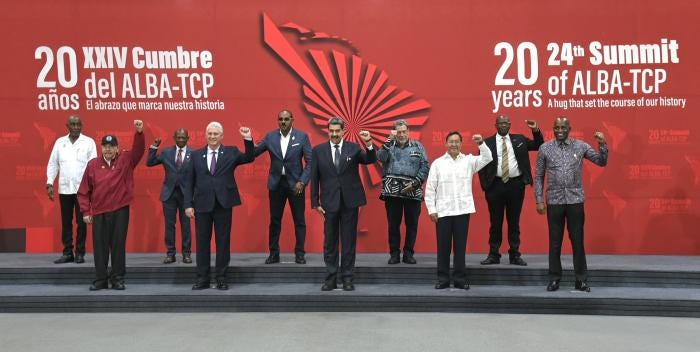ALBA-TCP commemorates 20 years
ALBA reaffirms its principles and calls for a multipolar world order
At a special summit in commemoration of the twentieth anniversary of its founding, the Bolivarian Alliance for the Peoples of Our America – Peoples’ Trade Treaty (ALBA-TCP) emitted a Declaration that reaffirmed its principles and purposes. The special summit, celebrated in Caracas, Venezuela, was the twenty-fourth summit of the Alliance.
ALBA was established in Havana on December 14, 2004, as the Bolivarian Alternative for the Peoples Our America in response to the U.S. effort to impose a Free Trade Area of the Americas (FTAA). FTAA would have been beneficial to the USA and deepened inequality in the region, in that it would have taken from the nations of Latin America and the Caribbean their right to protect their economies through tariffs and other measures. Standing against FTAA, Hugo Chávez and Fidel Castro proposed an alternative approach to regional integration, involving mutually beneficial commerce among the nations. ALBA was established for this p…


